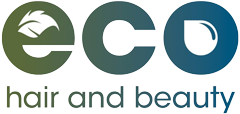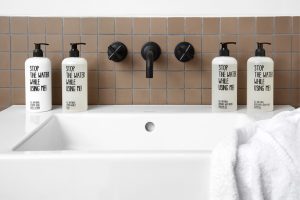Did you know that you could be harming the environment by using beauty products that are designed to exfoliate, and remove dead skin cells? Plastic microbeads are causing concern for environmentalists and have been under the microscope in recent years, backed by an international campaign called ‘Beat the Microbead’ which began in 2012. The beads are found in exfoliating products such as face washes, shower scrubs and even some toothpastes and a single product can contain thousands of microbeads.
Plastic microbeads have a negative impact upon the environment as they are washed down our sinks and into the water system, they are often left untreated due to the tiny size of them which prevents them from being filtered from the water by water treatment plants. Extremely high concentrations of plastic microbeads have been found in lakes and oceans across the world. Marine life often consume the beads as they cannot differentiate between the small round beads and food, but this has serious implications for marine life and humans. The microbeads attract, absorb and are often coated with toxins, so much so that scientists believe that microplastics should be classified as hazardous waste. The beads are digested by marine life, and this eventually works its way back up the food chain as we as humans consume seafood, and can result in ourselves being exposed to, and digesting these toxins. This exposure increases for humans when eating the animal whole, such as shellfish.
Worryingly, the microbeads are also made out of plastic and can take centuries to biodegrade. Plastic is already a major environmental threat to our oceans and there is so much plastic that finds its way into our oceans that a plastic collection in the middle of the Pacific Ocean has been found to be twice the size of the state of Texas. Plastic microbeads, despite their size only add to this problem and will remain in the ocean for future ecosystems and generations to deal with.
Eco Hair and Beauty found in 2012 that hairdressers have the ability to pass on environmental information to clients and can help to create a ripple effect of pro-environmental behaviour throughout their communities and wider society, and beauty therapists can do the same. Help to protect marine life, water quality and society by checking the exfoliating products that you use in the salon to see what ingredients they contain. If ‘polyethylene’, ‘polypropylene’, ‘polyethylene terephthalate’, ‘polymethyl methacrylate’ or nylon are listed in your ingredients list then the product contains plastic microbeads and will continue to pollute rivers, oceans and lakes.
You can also help to raise awareness about the environmental impact that these tiny beads are having upon our environment and society among your clients. Many consumers are becomingly increasingly interested in the social and environmental impacts of their purchases so spread the word and advise your clients to check their bathroom cabinets at home for products that contain plastic microbeads. In addition, choose to stock exfoliating products that contain natural ingredients as oppose to plastic.
Lots of companies that mass produce such products have stated that they will remove plastic microbeads and replace them with natural alternatives by the end of 2015, but some have not set a date. Companies began using plastic microbeads because they were cheaper to produce than natural alternatives. However, companies such as Lush and Burt’s Bees are committed to using naturally exfoliating ingredients such as ground nut shells and aduki beans, which are all from sustainable sources. Lush bath bombs which contain glitter are even made from synthetic mica and isn’t harmful to the environment. Other alternatives include rice, wax, apricot seeds, walnut shells, bamboo, salt crystals and many more. Natural ingredients are also gentler and kinder to the skin which is of great benefit to you and your clients.
Until companies redesign mainstream products to include natural alternatives savvy shoppers can also download the ‘Beat the Microbead’ app which scans products and lets you know if it contains microbeads or not. The link to which can be found by following the ‘education’ link on our website and clicking on ‘resources’.
As an industry we can prevent more plastic microbeads from entering our rivers, lakes and oceans so start by checking the ingredients in your products today and be sure to pass this knowledge on to your clients to have a greater impact.








